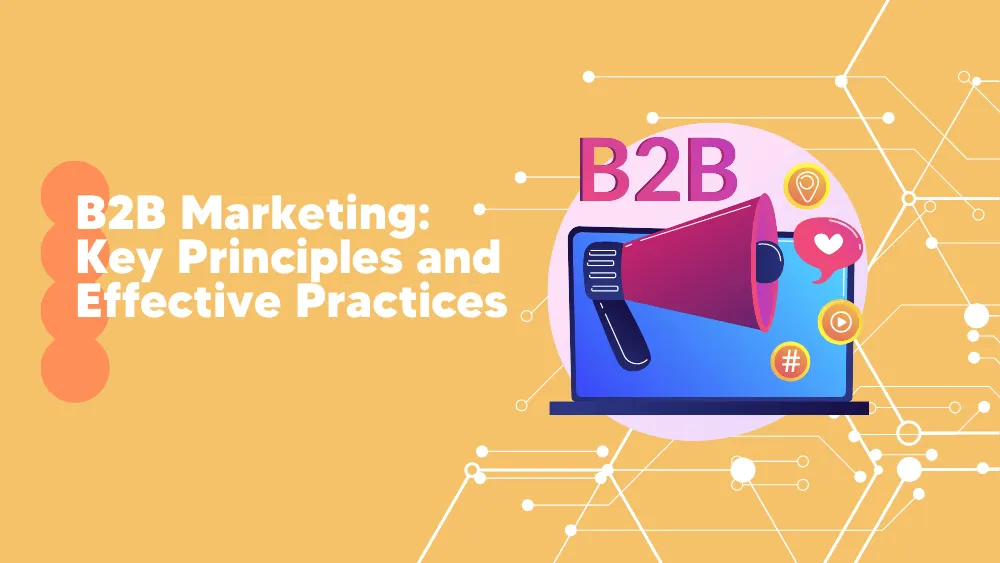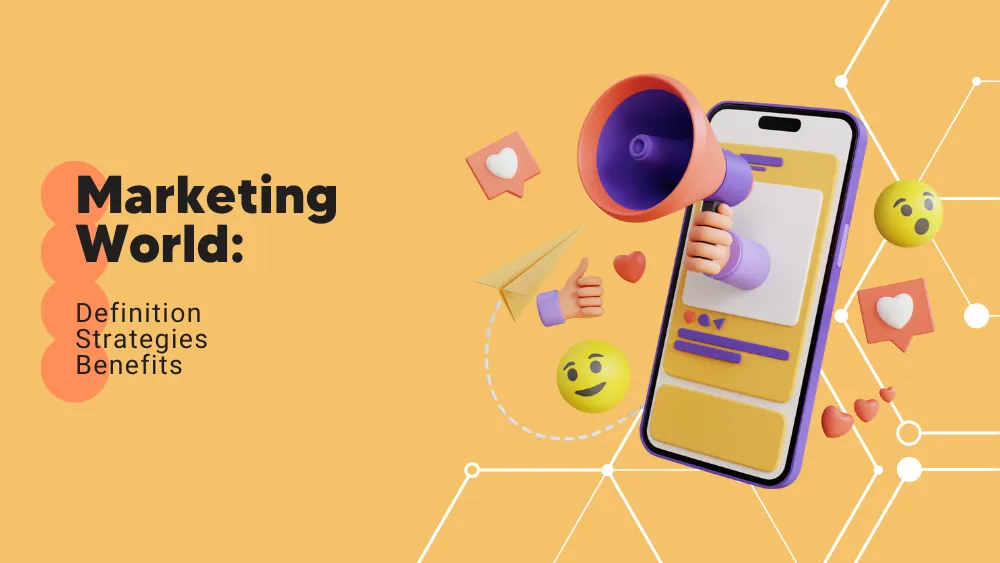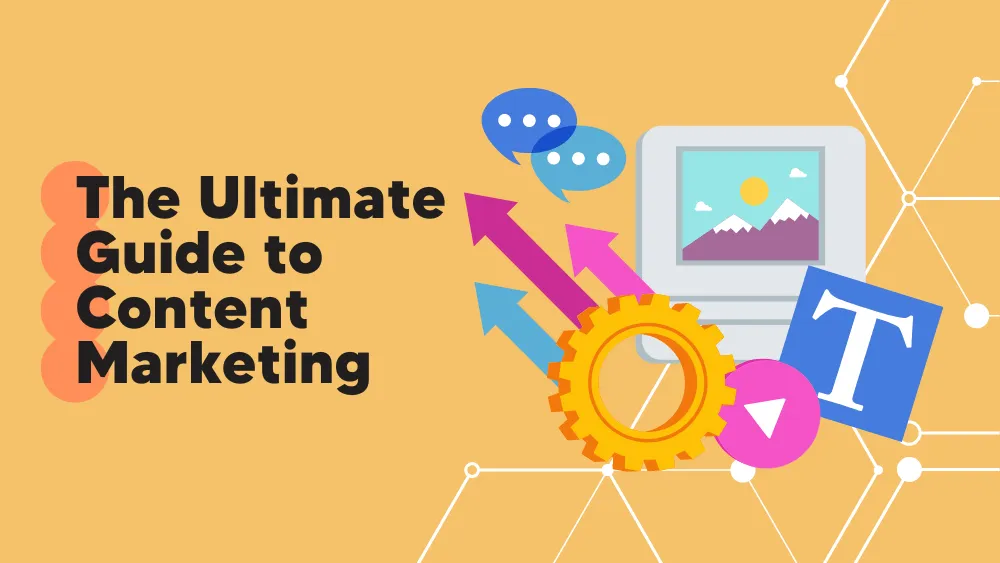Table of Contents
At its heart, B2B marketing involves promoting products or services from one business to another. Yet, it is far more than a simple transaction; it’s a sophisticated process rooted in strategic relationships, tailored offerings, and an intricate understanding of an industry’s landscape.
The theater of B2B marketing starkly contrasts business-to-consumer (B2C) marketing. While B2C marketing often focuses on emotional narratives and individual desires to pull at the heartstrings of potential consumers, B2B marketing plays a different tune. It dances to the rhythm of logic and efficiency, drawing heavily on the value of relationships, product features, and cost-effectiveness. Its audience is typically a small, more focused group of decision-makers who look for clear ROI and long-term benefits.
Now, you might ask why you, an entrepreneur, a business executive, or perhaps even a tech genius, care about the nitty-gritty of B2B marketing. Understanding these dynamics is instrumental to your business’s success, especially if your company operates within the B2B space. Mastering this skill enables your enterprise to connect and engage with potential partners more effectively, optimize your sales process, and maximize business opportunities.
As we delve into this article, we will unpack the principles of B2B marketing, introduce proven practices, and explore strategies that can help your business grow and thrive in this interconnected world.
Key Principles of B2B Marketing
Understand Your Target Audience
As Sun Tzu might’ve said if he’d been a marketer rather than a war strategist, “Know thy market and know thyself, fear not the outcome of a hundred sales pitches.” The gist here is that you must get friendly with your audience. Understanding your target audience is the compass guiding your B2B marketing efforts. Market research is your best friend in this respect, providing invaluable insights into your potential customers’ needs, pain points, and decision-making processes.
Segmenting your B2B market allows you to better tailor your messaging and product offerings to each group’s unique needs. It’s about ensuring your marketing efforts speak directly to the businesses you want to work with. A critical aspect of this is understanding Decision-Making Units (DMUs) – the key individuals within a business who call the shots. By learning their language, roles, motives, and worries, you can craft a marketing strategy that speaks directly to them.
Prioritize Relationship Building
In the world of B2B marketing, relationships are the lifeblood of success. Unlike B2C transactions, which can be fleeting, B2B relationships often unfold over months, years, or even decades. The value of trust and credibility cannot be overstated – businesses want to work with partners they can rely on, who provide consistent quality and are in it for the long haul.
Customer retention and lifetime value also play pivotal roles in B2B marketing. It’s not just about making a sale; it’s about nurturing a relationship that encourages ongoing business engagements. Sticking with a loyal customer might just beat chasing after new ones – like the old saying, “a bird in the hand is worth two in the bush,” except here, birds are clients, and bushes are…you get the idea.
Importance of Content in B2B Marketing
In the age of pixels and data, content wears the crown. For B2B marketing, content serves as a tool for thought leadership, helping businesses position themselves as experts in their field. From blog posts and whitepapers to webinars and infographics, different types of content can educate, inform, and inspire your target audience, building trust and facilitating engagement.
Moreover, good content boosts your Search Engine Optimization (SEO) efforts. By producing content that resonates with your audience and includes the right keywords, you improve your chances of being found by the right businesses on search engines.
Data-Driven Decision Making
If understanding your audience is the compass, data is the map you need for your B2B marketing journey. The importance of marketing analytics cannot be emphasized enough. It helps gauge the effectiveness of your marketing efforts, reveals patterns and trends, and provides insights to make more informed decisions.
Fueled by data, predictive marketing allows you to anticipate future trends, customer needs, and market shifts. Furthermore, A/B testing is invaluable in decision-making, letting you experiment with different strategies and determine which works best for your target audience.
Personalization in B2B Marketing
While B2B marketing tends to be more logical and less emotional than B2C, it doesn’t mean it has to be impersonal. Enter personalization and customization – two sides of the same coin that can drastically improve your marketing outcomes.
While personalization is about tailoring your marketing messaging to resonate with your audience, customization lets your customers tweak your product or service to suit their needs better. Technology plays a vital role in personalization, leveraging data to create targeted, relevant, and engaging experiences for each business.
The impact of personalization on conversion rates is impressive. Businesses are more likely to engage with partners who demonstrate an understanding of their specific needs and provide tailored solutions. So, don’t be afraid to get personal – your conversion rates will thank you.
B2B Marketing Best Practices
Create Buyer Personas
Imagine stepping into your potential client’s shoes and understanding their needs, motivations, and pain points. Enter the world of buyer personas – semi-fictional representations of your ideal customer. By defining these personas, you can tailor your marketing efforts to resonate with the key decision-makers you want to reach.
Creating detailed buyer personas involves conducting market research, surveying existing clients, and leveraging industry reports. You can find a step-by-step guide to creating buyer personas in our previous article. Once crafted, these personas should guide your marketing strategies, helping you deliver personalized and targeted messages.
Utilizing Multi-Channel Marketing
In the diverse landscape of B2B marketing, it’s crucial not to put all your eggs in one basket. Multi-channel marketing, as the name suggests, involves leveraging multiple marketing channels, both online and offline, to reach your target audience. By integrating these channels, you can create a seamless, consistent experience for your potential clients.
Measuring its effectiveness can be a challenging task. However, tools like Google Analytics, HubSpot, or Marketo can help track user interactions across various channels and provide insights into which ones drive the most engagement and conversions.
Invest in Content Marketing
Content marketing is the trusty steed of your B2B marketing efforts. It involves creating and sharing valuable content to attract, engage, and convert your target audience. The benefits of content marketing are manifold: establishing authority, building trust, improving SEO, and nurturing customer relationships, to name a few.
A good content marketing strategy should align with your business goals, be informed by your buyer personas, and cover a variety of formats – from blog posts and whitepapers to videos and podcasts. Look no further than companies like HubSpot or Cisco for examples of successful content marketing.
Leverage Social Media for B2B Marketing
Who says social media is only for B2C? The B2B world can, and should, get social too. LinkedIn, Twitter, and even Instagram can serve as effective platforms for reaching potential clients, sharing content, and building brand awareness.
Selecting the right social platforms depends on where your target audience spends their time. A LinkedIn presence is necessary for most B2B companies, but don’t discount other platforms without thorough research. Once you’ve chosen your platforms, develop a social media strategy that includes regular posting, engaging with followers, and tracking key metrics.
Implement Marketing Automation
Marketing automation can be a game-changer for B2B companies, streamlining tasks, improving efficiency, and allowing for more personalized marketing. Whether email marketing, social media posting, or lead nurturing, automating these processes can save you time and enhance your marketing effectiveness.
Choosing the right marketing automation tool depends on your specific needs and budget. Platforms like HubSpot, Marketo, and Pardot are worth exploring. Once chosen, integrate the tool into your organization and train your team to use it effectively.
Measuring and Optimizing Marketing Efforts
“If you can’t measure it, you can’t improve it.” This adage rings particularly true in B2B marketing. Identifying key performance indicators (KPIs) provides a way to assess your marketing efforts’ effectiveness and identify improvement areas.
Common marketing metrics for B2B companies include lead generation, conversion rates, customer acquisition cost, and lifetime value. Remember, the goal isn’t just to measure these metrics but to use them as a basis for continuous improvement in your B2B marketing efforts. After all, marketing isn’t a set-it-and-forget-it endeavor; it’s a constantly evolving process that demands ongoing optimization.
Conclusion
Navigating the B2B marketing landscape is complex, necessitating a deep understanding of your audience, a commitment to relationship-building, and an ability to leverage content effectively. Each keyword we’ve unpacked, from creating detailed buyer personas to the power of personalization, plays a crucial role in this intricate arena.
Effective B2B marketing transforms businesses; it fosters partnerships, drives growth, and facilitates sustained profitability. It’s not just about promoting products or services. It’s about creating value, forging durable alliances, and enabling businesses to reach their potential.
Remember, B2B marketing isn’t a destination; it’s a continuous learning, adaptation, and improvement journey. So, keep exploring and growing because mastering B2B marketing is an endeavor with opportunities for those bold enough to grasp them.





